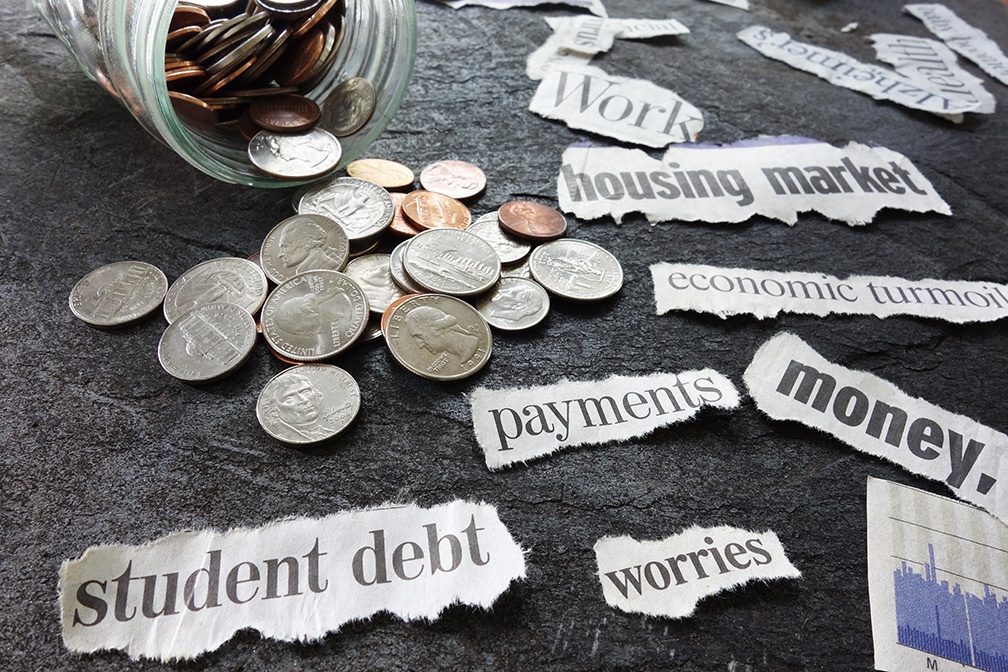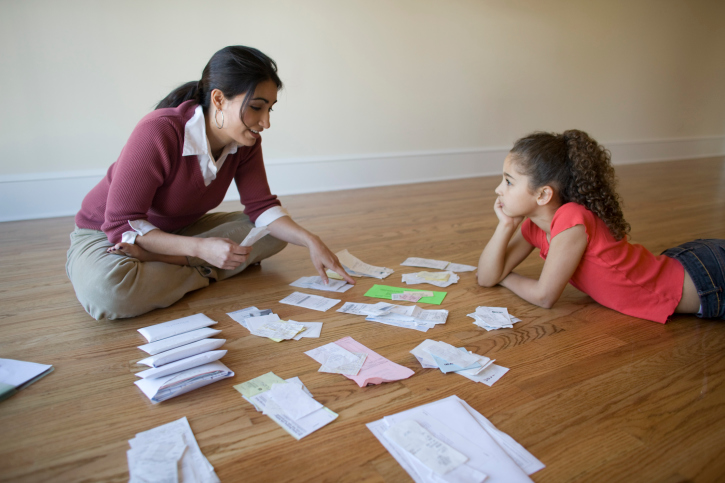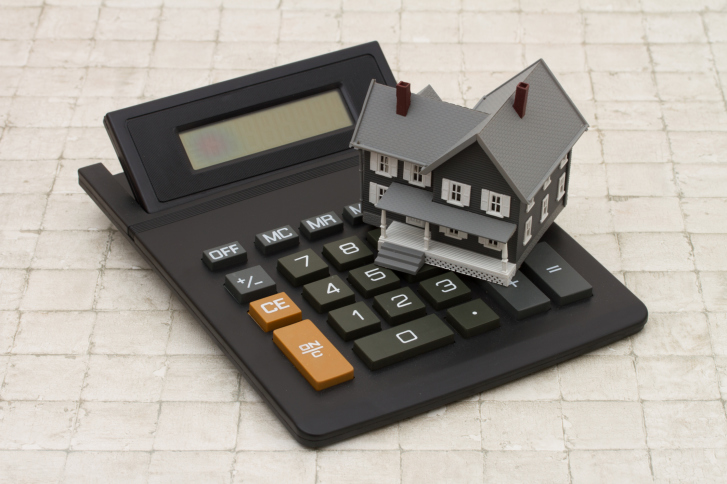 Whether you are just about to graduate college or you have been out of school for a few years, there’s a good chance you’re carrying some amount of student loan debt. It seems that news headlines are regularly pointing out that the nation’s graduates are suffering from the stress of student debt. Moreover, that pressure can be even worse for those who are looking to buy a home and start putting some roots down in the local community.
Whether you are just about to graduate college or you have been out of school for a few years, there’s a good chance you’re carrying some amount of student loan debt. It seems that news headlines are regularly pointing out that the nation’s graduates are suffering from the stress of student debt. Moreover, that pressure can be even worse for those who are looking to buy a home and start putting some roots down in the local community.
Are you worried that past student loan debt will affect your chances of buying a home? Let’s run through a few tips that can help put your debt worries at ease.
Start A Budget And Embrace Using It
The first and most important step anyone with debt can take is to commit to a monthly budget. Managing your debts means living within your means. In turn, that requires careful examination of your income and expenses to ensure your debts are being paid down.
Also, in most cases, interest is being charged on outstanding student loan debt which makes it a high priority for repayment. The faster you can pay your student loan debt off, the less interest you will pay on top of it.
Check In With An Expert Advisor
If all of this seems confusing, you’re not alone. The good news is that there are expert debt and financial advisors that can help you to make sense of it all. They will help you to understand exactly where your money is going each month and what kind of financial discipline you’ll need to clear the path to home ownership. Many are provided by local or state governments at no cost, so be sure to check out your local options.
Reach Out To Friends And Family
Don’t forget that friends, colleagues and family members can be a great source of advice and support. Close family members may also be willing to lend a hand financially to get you out of renting and into your own home. Also, be sure to check in with former college classmates who have gone on to buy homes in the area. They’ll be a great source of information.
While past student loan and other debts can crimp one’s finances, they are no reason to put off home ownership indefinitely. For more information and to view affordable starter home options in the area, contact your local real estate professionals.
 In these days of low interest rates, it can be a great idea to get into the real estate market and invest in a home. However, if you don’t have the funds saved up to buy a home outright, it may seem like more of a burden than it’s worth. The good news is that you might qualify for a mortgage loan, which tends to come with more favorable terms than a traditional bank loan. Here are three reasons why a mortgage might just be the best money you ever borrow.
In these days of low interest rates, it can be a great idea to get into the real estate market and invest in a home. However, if you don’t have the funds saved up to buy a home outright, it may seem like more of a burden than it’s worth. The good news is that you might qualify for a mortgage loan, which tends to come with more favorable terms than a traditional bank loan. Here are three reasons why a mortgage might just be the best money you ever borrow. Are you considering buying a home for the first time? For some, it can seem nearly impossible to come up with the funds for the down payment. Fortunately, there are a few ways that you can save a little over time and not have to borrow from the “Bank of Mom and Dad”. If you’re looking to invest in a home in the short-term and are looking for solutions to save up, here are some tips on how to get to your down payment amount more quickly.
Are you considering buying a home for the first time? For some, it can seem nearly impossible to come up with the funds for the down payment. Fortunately, there are a few ways that you can save a little over time and not have to borrow from the “Bank of Mom and Dad”. If you’re looking to invest in a home in the short-term and are looking for solutions to save up, here are some tips on how to get to your down payment amount more quickly. A mortgage is one of the most expensive purchases you’ll make in your life, and for many, the idea of being indebted to it for years can seem like quite a burden. However, while you won’t necessarily be able to pay off your home with instant savings, there are ways that you can pay it down more quickly. If you’re wondering how to drum up some extra money for your mortgage, you may want to consider the following options.
A mortgage is one of the most expensive purchases you’ll make in your life, and for many, the idea of being indebted to it for years can seem like quite a burden. However, while you won’t necessarily be able to pay off your home with instant savings, there are ways that you can pay it down more quickly. If you’re wondering how to drum up some extra money for your mortgage, you may want to consider the following options. The idea of paying off your student loans and buying a home at the same time can seem like an impossible feat given the impact on your Debt-to-Income (DTI) ratio. However, there are ways it’s possible to have enough funds and good enough credit to make your dream of home ownership come true a little more quickly. If you’re currently considering how to manage both, here are some options you might want to consider.
The idea of paying off your student loans and buying a home at the same time can seem like an impossible feat given the impact on your Debt-to-Income (DTI) ratio. However, there are ways it’s possible to have enough funds and good enough credit to make your dream of home ownership come true a little more quickly. If you’re currently considering how to manage both, here are some options you might want to consider. Autumn is a popular time for new home buyers to start looking for their first house or condo. But with that down payment looming, everybody could use a bit of help saving up to make that bulk payment a little less intimidating.
Autumn is a popular time for new home buyers to start looking for their first house or condo. But with that down payment looming, everybody could use a bit of help saving up to make that bulk payment a little less intimidating. A monthly mortgage can seem like enough of a financial responsibility on its own, but there are many factors involved in home ownership that affect its fiscal feasibility. If you’re in the market for a house and are wondering how your income will stack up against the rest of your expenses, here’s how to determine a home cost that’s reasonable for you.
A monthly mortgage can seem like enough of a financial responsibility on its own, but there are many factors involved in home ownership that affect its fiscal feasibility. If you’re in the market for a house and are wondering how your income will stack up against the rest of your expenses, here’s how to determine a home cost that’s reasonable for you. From mortgage to equity to debt-to-income ratio, there are many terms associated with home ownership that can be quite confusing if you’ve never been on the market for a home before. ‘Conforming loan limit’ may be a less familiar real estate term than the rest, but here are some things you’ll need to know about it and what it could mean for your biggest investment.
From mortgage to equity to debt-to-income ratio, there are many terms associated with home ownership that can be quite confusing if you’ve never been on the market for a home before. ‘Conforming loan limit’ may be a less familiar real estate term than the rest, but here are some things you’ll need to know about it and what it could mean for your biggest investment. Traditionally, getting a mortgage requires you to have a level of income appropriate to the size of home that you’re buying. But for a lot of low-income and minority borrowers, a simple measure of one person’s income isn’t an accurate measure of whether or not that person can afford a home.
Traditionally, getting a mortgage requires you to have a level of income appropriate to the size of home that you’re buying. But for a lot of low-income and minority borrowers, a simple measure of one person’s income isn’t an accurate measure of whether or not that person can afford a home. Whether or not you’re new to real estate, there’s little doubt that you’ve heard the term down payment as it relates to purchasing a home. There’s a lot of different information out there in regards to how much this figure should be and it can be hard to determine exactly what the importance of this payment is. If you’re trying to determine the ideal amount to put down, here are some things to consider.
Whether or not you’re new to real estate, there’s little doubt that you’ve heard the term down payment as it relates to purchasing a home. There’s a lot of different information out there in regards to how much this figure should be and it can be hard to determine exactly what the importance of this payment is. If you’re trying to determine the ideal amount to put down, here are some things to consider.